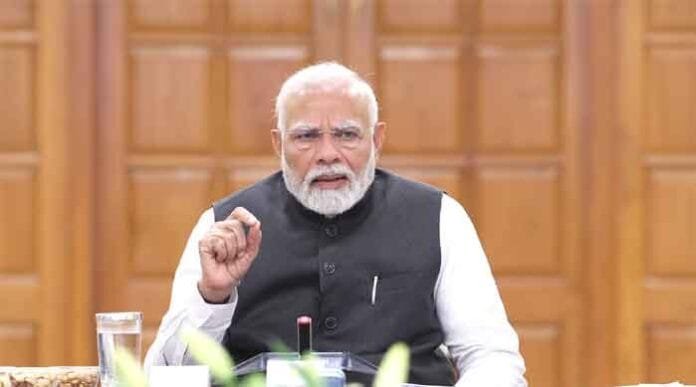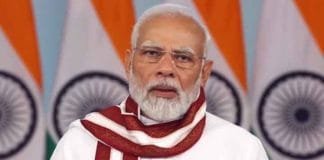New Delhi — In a sweeping diplomatic and security move, the Government of India has suspended all visa services for Pakistani nationals with immediate effect, following the deadly terror attack in Pahalgam that claimed the lives of 26 civilians. The decision, announced late Wednesday by the Ministry of External Affairs (MEA), represents a sharp escalation in India’s response to what it described as cross-border terrorism.
The MEA confirmed that all existing valid visas issued to Pakistani citizens will stand cancelled from April 27, 2025. Exceptions have been made only for medical visas, which will remain valid until April 29, 2025. However, all Pakistani nationals currently in India under any visa category have been directed to exit the country before their respective visa validity expires, failing which action will be taken under Indian immigration laws.
Cabinet Committee on Security Orders Sweeping Measures
The move comes a day after the Cabinet Committee on Security (CCS), chaired by Prime Minister Narendra Modi, met to review the national security landscape following the terror strike in Jammu and Kashmir’s Pahalgam region. The attack, carried out by heavily armed militants, is believed to have been orchestrated with support from elements based across the border.
According to government sources, the CCS meeting culminated in a series of measures, including:
Suspension of visa services for Pakistani citizens.
Immediate expulsion of Pakistan’s military attaché from the Indian mission in New Delhi.
Suspension of the 1960 Indus Waters Treaty, a historic agreement that governs river water sharing between the two countries.
Closure of the Attari land transit point, one of the few remaining active border crossings.
These steps are being seen as some of the most stringent bilateral restrictions imposed by New Delhi in recent years.
Impact on Medical Visas and Patients From Pakistan
The decision is likely to disrupt medical tourism, particularly for Pakistani nationals who travel to India seeking advanced treatment for critical conditions such as heart disease, cancer, and organ transplants. Indian hospitals in cities like Delhi, Mumbai, and Chennai are among the most sought-after destinations for patients from across the border.
Typically, medical visas are granted for a duration of three months, with mandatory registration at Foreigners Registration Offices (FRO) or Regional FROs within 7 days of arrival. In its official statement, the MEA reiterated that all such visas will expire on April 29, and no extensions will be entertained under the current policy revision.
Health administrators and hospital authorities in India are now working to coordinate with Pakistani patients already undergoing treatment to facilitate their departure within the stipulated timeframe.
Transit and Airport Protocols Tightened
The MEA also addressed concerns surrounding transit visas and movement through Indian airports by Pakistani citizens en route to third countries. Under the new directives, Pakistani nationals in transit will not be allowed to leave airport premises, and their stay cannot exceed 72 hours under any circumstances.
These enhanced restrictions are expected to tighten India’s immigration protocols significantly and curb unauthorized movements linked to suspected intelligence or terror networks.
A Diplomatic Signal Amid Escalating Tensions
The visa suspension comes as a clear diplomatic signal, aimed at isolating Pakistan in the wake of yet another terrorist provocation on Indian soil. High-level sources in the Ministry of Home Affairs confirmed that India will also be reviewing back-channel communication channels and bilateral agreements related to trade, water, and cultural exchanges.
India’s move has already drawn sharp reactions from Islamabad, which has summoned the Indian envoy to lodge a formal protest. However, Indian officials maintain that the visa freeze is a sovereign decision and is in line with India’s right to protect its borders and citizens from foreign threats.
Security Measures Enhanced Across Border States
Following the Pahalgam attack, security has been beefed up across Jammu and Kashmir and other border states, with intelligence agencies placed on high alert. The Ministry of Home Affairs is coordinating with local governments to conduct intensive verification drives, especially in areas with high foreign tourist footfall.
The Indian Army, Border Security Force (BSF), and state police forces have also been directed to step up patrolling along the Line of Control (LoC) and international border sectors, anticipating potential escalations in cross-border firing or infiltration attempts.
Opposition Reacts, Public Sentiment Overwhelmingly Supportive
While the opposition has expressed concern about the potential impact on people-to-people exchanges and humanitarian access, public sentiment largely favors the government’s bold action. Social media platforms saw a massive spike in messages demanding strong retaliation and policy overhauls following the terror attack.
Leading political voices across party lines have backed the suspension as a “necessary and long-overdue” step to convey India’s intolerance for terrorism.
















